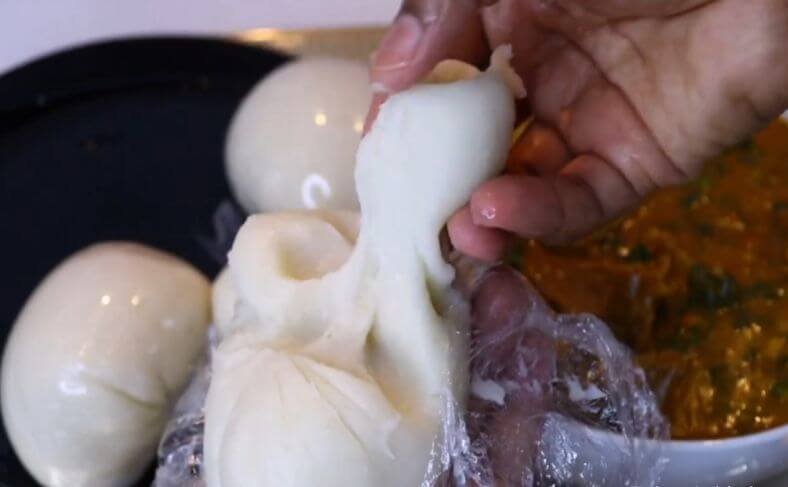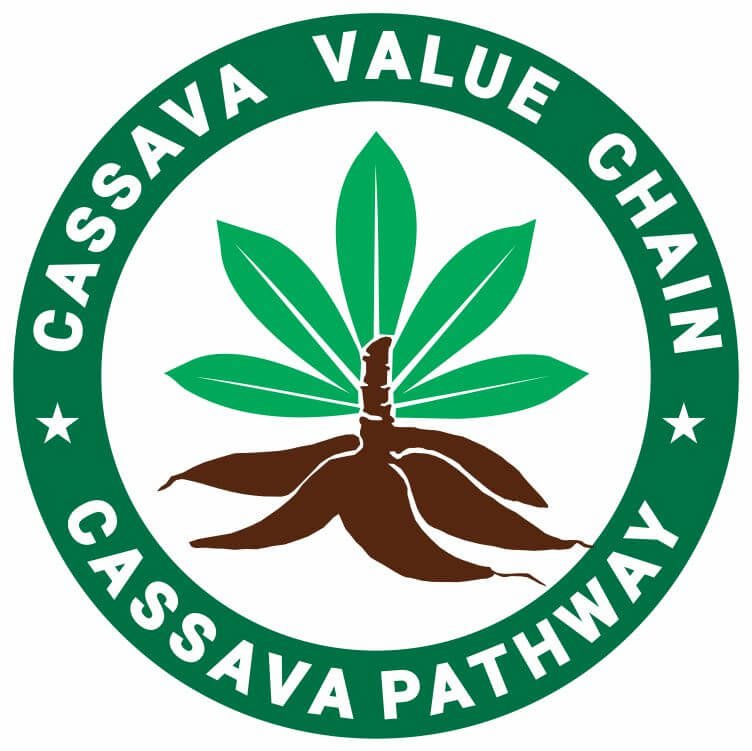We hear a lot of complimentary things about cassava plant and its health benefits, including being gluten-free. But is cassava good for you?
In this blog post, we will find out if cassava root is good for you, hinging on the potential dangers it poses to people with certain health conditions.
Check out the nutritional information of cassava here.
First and foremost, cassava root is a good source of carbohydrates, which are the body’s primary source of energy.
This makes it a great option for athletes and people with high-energy needs.
In my teenage years in the Eastern part of Nigeria, cassava fufu (akpu) was our go-to meal for every energy-tasking activity like farming.
Cassava provides instant energy that takes time to wear off, and I know I am not alone.
Cassava is also rich in fiber and vitamins, which can help promote a healthy digestive system, prevent constipation, and sustain overall health.
So, let’s find out, is cassava root good for you?
So, is Cassava Root Good for You?
However, despite its many health benefits, cassava root can also pose dangers to people with certain health conditions.
Cassava tuber contains compounds called cyanogenic glycosides, which can release cyanide when consumed in large amounts.
While cassava is safe to eat in moderation, consuming large quantities of cassava or poorly processed cassava can lead to cyanide poisoning. Please don’t eat raw cassava.
Symptoms of cyanide poisoning include nausea, vomiting, and stomach cramps, and severe cases can be fatal.
Related Posts
Differentiating Bitter and Sweet Cassava Roots
Who is at High Risk of the Cassava Root?

People with glucose-6-phosphate dehydrogenase (G6PD) deficiency are at a higher risk of cyanide poisoning from cassava root consumption.
In addition, cassava root is a high-carb food. While research suggests cassava is less likely to cause a spike in blood sugar, diabetics should eat it in moderation.
Risks and Considerations in the Cassava Root Consumption
1. Cyanide Toxicity
Raw cassava root and improperly prepared cassava contain cyanogenic glycosides, which can release cyanide when broken down.
Consuming large amounts of raw or improperly cooked cassava can lead to cyanide poisoning, which can cause headaches, nausea, vomiting, and even death in severe cases.
2. Goiter Risk
Cassava root contains goitrogens, which can interfere with thyroid function and increase the risk of goiter, especially in areas with iodine deficiency.
3. Allergic Reactions
In rare cases, people may have an allergic reaction to cassava, particularly those with latex allergies.
4. High Calorie Content
Cassava is relatively high in calories, with 330 calories per 1 cup serving.
Consuming too many calories from cassava can contribute to weight gain and related health issues like obesity and heart disease.
Cassava and Diabetes
For people with diabetes, cassava can be a suitable carbohydrate source when consumed in moderation as part of a balanced diet.
The resistant starch in cassava may help regulate blood sugar levels by slowing the digestion and absorption of carbohydrates.
However, it’s important to monitor portion sizes and consider the overall carbohydrate content of meals.
Cassava Tubers and Older Adults
Cassava can be a nutritious addition to the diet for older adults, providing essential nutrients like vitamin C and folate.
However, it’s important to consider the following:
- Chewing and Swallowing: Older adults may have difficulty chewing or swallowing cassava roots, especially if it’s not well-cooked or mashed. Proper preparation is essential to prevent choking hazards.
- Digestive Issues: Some older adults may experience digestive discomfort or bloating from the resistant starch in cassava. It’s best to introduce cassava gradually and monitor for any adverse reactions.
- Medication Interactions: Cassava contains compounds that may interact with certain medications, such as diabetes drugs or thyroid medications. Older adults should consult with their healthcare provider before adding cassava to their diet.
Frequently Asked Questions
Can diabetics eat cassava roots?
Diabetics can eat cassava roots in moderation as part of a balanced diet, as the resistant starch in cassava may help regulate blood sugar levels.
What does cassava root do to your body?
Cassava provides carbohydrates, vitamin C, and resistant starch, but raw or improperly prepared cassava can release cyanide, causing poisoning.
Is it safe to eat cassava every day?
Eating cassava occasionally in normal food amounts is likely safe, but consuming it regularly as part of a low-protein diet is possibly unsafe due to cyanide toxicity.
Is cassava a good or bad carb?
Cassava is a starchy vegetable high in carbohydrates, making it a good source of energy. However, it’s important to consume it in moderation as part of a balanced diet
Conclusion
Is cassava good for you? Cassava can be a healthy addition to a balanced diet for individuals without certain health conditions.
However, individuals with diabetes or G6PD deficiency need to consume cassava in moderation and consult with a healthcare professional before adding it to their diet.
By being mindful of portion sizes and processing methods, individuals can enjoy the many health benefits of cassava while minimizing the potential risks it poses.
Citations:
• https://www.healthline.com/nutrition/cassava
• https://www.medicalnewstoday.com/articles/323756
• https://www.health.com/cassava-8607938
• https://www.healthifyme.com/blog/cassava-benefits/

Chimeremeze Emeh is a writer and researcher passionate about Africa’s most transformative root crop—cassava. Through his work at cassavavaluechain.com, he explores the entire cassava industry, from cultivation and processing to its diverse applications in food, health, and industrial use.
He also writes for palmoilpalm.com, where he shares his extensive experience and deep-rooted knowledge of palm oil, covering red palm oil, palm kernel oil, and refined products. His work there reflects his lifelong connection to agriculture and his commitment to promoting sustainable value chains in Africa.
Driven by curiosity and purpose, Chimeremeze aims to shed light on how cassava continues to empower communities, strengthen food systems, and link traditional farming wisdom with modern innovation.

